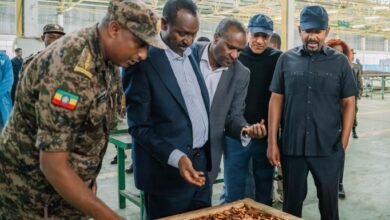Two Years of Conflict in Sudan: Global Efforts to Ease the Crisis

As Sudan marks the somber second anniversary of its civil war, the world watches with a mixture of sorrow and resolve. The conflict, ignited in April 2023 between the Sudanese military and the Rapid Support Forces (RSF), has claimed over 24,000 lives and displaced nearly 13 million people, creating one of the most severe humanitarian crises in recent history.
In response, international leaders convened in London for a pivotal conference aimed at alleviating the suffering of the Sudanese population. Co-hosted by the African Union, the United Kingdom, the European Union, France, and Germany, the event underscored the urgent need for humanitarian assistance.
The UK pledged £120 million to provide food for 650,000 people, while the EU and its member states committed €590 million to support the crisis.
However, despite these generous pledges, the conference faced challenges. Efforts to establish a contact group for ceasefire negotiations faltered when key regional powers, including Egypt, Saudi Arabia, and the UAE, declined to endorse a joint communique. This diplomatic impasse highlighted the complexities of achieving peace amid competing regional interests.
The human toll of the war is harrowing. In Darfur, recent attacks by the RSF have resulted in the deaths of over 300 civilians within a span of two days, exacerbating the already dire conditions in displacement camps. These assaults have forced thousands to flee, seeking refuge in already overwhelmed cities like El Fasher.
Amidst the chaos, grassroots organizations such as the Emergency Response Rooms (ERRs) have emerged as beacons of hope. Formed by Sudanese resistance committees, the ERRs have provided critical aid to over 11.5 million people, delivering clean water, medical supplies, and evacuation assistance. Their efforts have been recognized globally, with the Peace Research Institute Oslo nominating them for the 2025 Noble Peace Prize.
While the international community has mobilized significant resources, the path to peace remains elusive. The United Nations estimates that $6 billion is required to support nearly 21 million people inside Sudan and up to 5 million refugees in neighbouring countries. This unprecedented humanitarian need calls for sustained global attention and action.
As the world grapples with this crisis, the resilience of the Sudanese people and the solidarity of the international community offer a glimmer of hope. The journey toward peace is fraught with challenges, but it is a journey that must be undertaken together, with compassion, commitment, and unwavering support for those who have endured so much.





